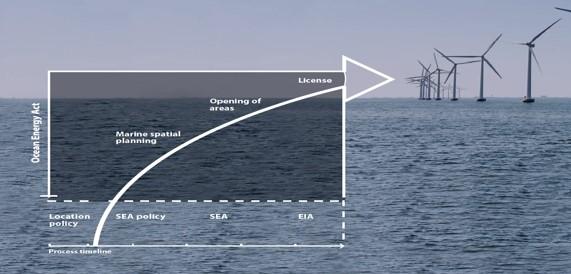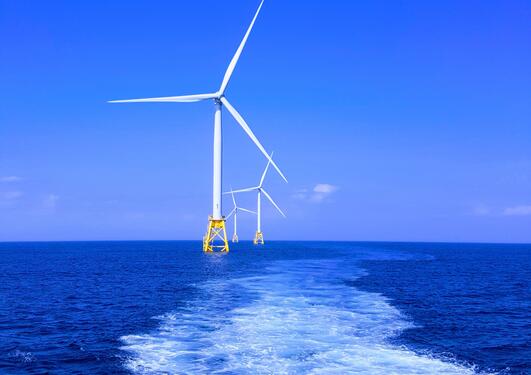Designing a Refined Legal Framework for Offshore Wind in the North Sea Basin (DeWindSea)
Professor Sigrid Eskeland Schütz has received grants from Akademiaavtalen to do research on the legal framework on offshore wind in the North Sea Basin. The project is funded over a four year period, until 2024.
Main content
The Ocean Energy Act is a legal framework. The development of delegated detailed regulation needs to be anchored in legal science, and the project will contribute to this.
Sigrid Eskeland Schütz
About the prosjekt
The objective of the project Designing a Refined Legal Framework for Offshore Wind in the North Sea Basin (DeWindSea) is to bring up-to-date insights on technology potentials for offshore wind together with research on the legal and societal challenges associated with offshore wind development.
The purpose is to support the design of a refined, efficient and adequate legal framework for offshore wind in the North Sea Basin in general, and in Norway in particular. The project will collect and analyze data on public perception and acceptance of offshore wind and related infrastructure and analyze legal challenges from large-scale wind projects in the North Sea Basin in the framework of technical options and public perception and acceptance.
The Sustainable Development Goals
Offshore wind farms (OWFs) in the North Sea Basin have great potential to significantly increase the share of renewable energy consumption, and thereby contribute to the reduction of greenhouse gas emissions. Additionally, job-creation, industry development and enhanced competiveness may follow from the establishment of OWFs. This type of 'blue growth' in the North Sea can contribute towards achieving the 2030 target for several of the UN Sustainable Development Goals (SDG) — Affordable and clean energy (SDG 7), Industry, innovation and infrastructure (SDG 9) and Climate action (SDG 13) — as well as towards meeting the EU/EEA Member State's renewable energy quota. Synergies between these and other SDGs is evident, as is the potential for conflicts and trade-offs. The impact of OWFs stress ecology, affecting Life below water (SDG 14). OWFs could displace conflicting or alternative uses of marine space, such as fisheries or aquaculture, harming goals such as Zero hunger (SDG 2) and Good Health and Well-being (SDG 3). It could also displace other climate mitigation technologies, such as offshore Carbon Capture Storage (CCS). Offshore wind-solutions are, furthermore, dependent on technological advancements and must take into account the public and societal challenges associated vith major offshore wind installations

